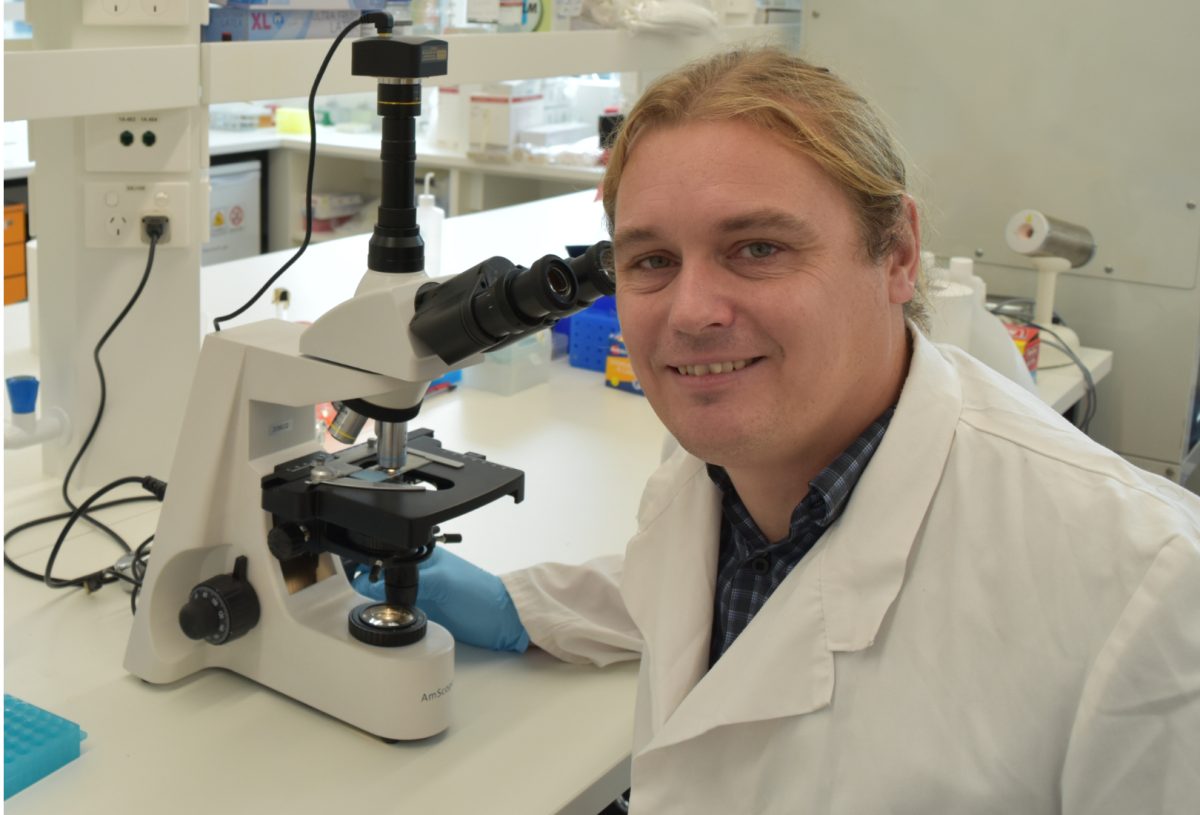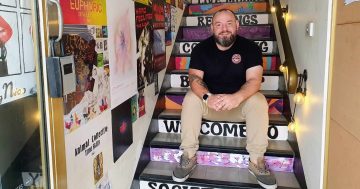
Mogwai Labs owner Josh Allen is ready to expand his liquid yeast business. Photo: Supplied.
Wollongong yeast bank Mogwai Labs owner Josh Allen is raising a glass to shifting out of start-up phase and into growing the business within the brewing industry.
Josh was a University of Wollongong (UOW) graduate in biology, before spending 10+ years in medical research focused on neuroscience and cancer cell replication biology.
During that time, he delved into home brewing and then commercial brewing, co-founding Sydney’s Merchant Brewing Co in 2015.
“It was during that time that I realised there was a bit of a gap in the market in terms of all high-quality liquid yeasts having to come in from overseas,” he said.
He admits, deciding to shift out of medical research was difficult.
“I really enjoyed what I was doing in medical research, but it was my passion for the beer and beverage industry and combining that with my science background that was the reason for it,” he said.
Started in 2020 with his wife Elly, Mogwai Labs has spent the past couple of years in start-up mode at the iAccelerate Innovation Campus.
“We’ve gone through this start-up, proof of concept stage where I operate a small lab space out of the University of Wollongong and have gone through the iAccelerate program,” he said.
“Now we’ve finished this start-up phase and entered a growth stage and we’re just trying to work out how to grow and what that looks like and trying to find a bigger production manufacturing facility.”
While there is more competition in the liquid yeast space in Australia now, due to the growing nature of the craft beer industry, Josh has been able to gain strong support for his yeasts, including from South Coast brewers.
To cater to this, he has developed a wide range of yeasts, from common yeast strains through to mixed cultures.
“We want to have a huge biobank, so a huge library collection of different yeast strains – yeast and bacterias,” he said.
“They include common domesticated strains that are used in popular or classic beer styles found around the world, like famous German ales and English ales and American ales, for example.
“So it gives brewers in Australia the chance to replicate those classic styles.
“Then moving to the more quirky end of the spectrum, where we have classical wild cultures – so famous wild cultures from places like Belgium.
“Then we’re focusing on foraged cultures, which is where we go out to different regions around Australia – at the moment we’re just focusing around the Illawarra and the South Coast – and trying to forage for wild yeast off different plant material.”
He said yeast and bacteria could grow on anything in nature, whether a piece of bark, soil, leaves or flowers, and could be collected through methods such as small pickings or a swab of pollen from a flower.
“You take it back to the lab, you start growing it up and then, fingers crossed, you come across something good,” he said.
“Going out and foraging for samples is the fun, easy part.
“It’s essentially a nice bushwalk where you can just take a few pickings or swabs and then you’re going back to the lab where there’s months and months of extensive work.
“I’ve got a whole bunch in the lab ready for processing from different bushwalking adventures around the place, but we do have a couple of products in the market used by local brewers.
“We have a wild yeast strain that is an acid producing strain and it can be used to create sour beers, and two local breweries are using that product at the moment.”
With South Coast brewers already being able to source hops and malt from within the state, this was the next stage in brewers being able to create “local” and unique brews.
“All it is, is essentially just giving them better access to a broader range of strains, which means they’ve got access to being able to produce a broader range of beer styles and different flavour combinations,” he said.
“I think the collection will forever be growing.
“The core strains that are used in 90 per cent of beers for all your general ales and lagers, that’s coming to a close, but then all the real fun, innovative stuff, that side of the collection will just continue growing indefinitely.”
With many of the strains named after pop culture references and regions of the world, he said the Mogwai Labs business name was inspired by the movie Gremlins and the connection between the role yeast plays in fermentation and the changes that occur to mogwais if fed after midnight.
“In a certain circle of friends, it was a nickname for me back at university,” he said.
“But the name comes with a reference to the movie Gremlins where you have a mogwai and it turns into a gremlin, so it’s about transition and change.
“That’s what adding yeast does – it’s creating that sugary malty product into a finished nice glass of beer.”
Learn more about the different yeast strains at Mogwai Labs.











